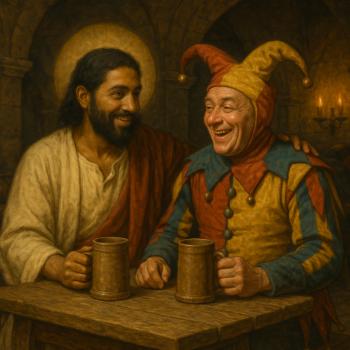More seriously, the Church has stood accused of executing scientists who dared question the Christian faith. It is a tragic indictment of the Catholic Church that it did hand over thousands of heretics to be burned at the stake. But none of these were ever persecuted for their scientific ideas. Even Giordano Bruno, the most commonly cited example, turns out to have been a magician and pagan. While this in no way exonerates the Church for burning him in 1600, it does prevent him from being a martyr for science. Ironically, the only great scientist to be executed was Antoine Lavoisier, the founder of modern chemistry, who was guillotined by the notably anti-Catholic French Revolutionaries.
While it is true that Galileo was placed under house arrest for denying that the sun goes around the earth, his trial revolved more around papal politics than the revolutions of the heavens. And today, there is a real argument between creationists and evolutionists, but even here there are Christians on both sides. So the history of science and religion is one of cooperation and argument, agreement and debate. It is hardly a story of unremitting conflict. Conflicts are more the exception than the rule, and Christianity has more often created a positive and nurturing atmosphere for scientific investigation. As historian Ronald Numbers ruefully notes, "Despite a developing consensus among scholars that science and Christianity have not been at war, the notion of conflict has refused to die." It is about time we buried it.
James Hannam earned degrees in physics and history from Oxford and London universities, and his doctorate in the history of science from Cambridge University. He blogs at http://bedejournal.blogspot.com and recently published God's Philosophers: How the Medieval World Laid the Foundations of Modern Science (London, 2009), the first history of medieval science written for the layperson. The Sunday Times called it "a spirited jaunt through centuries of scientific development" that "captures the wonder of the medieval world: its inspirational curiosity and its engaging strangeness."




